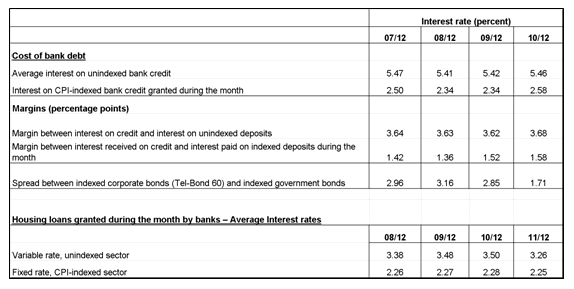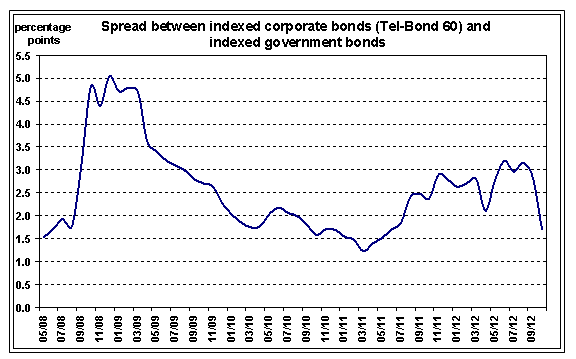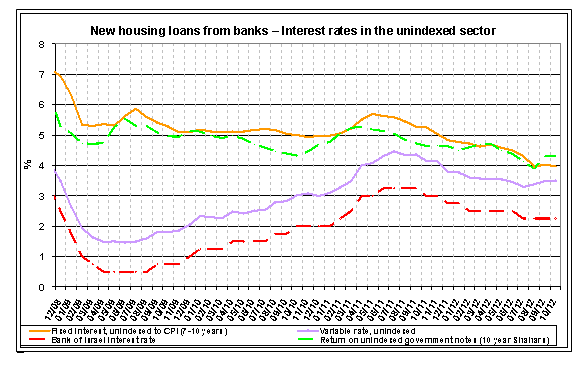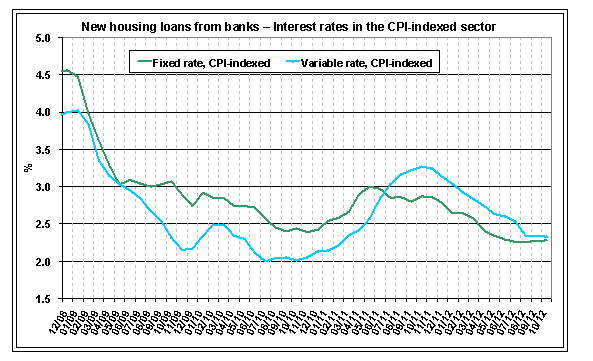To view this press release as a Word file
Business sector debt increased by about 0.7 percent to around NIS 788 billion in October, primarily through bank loans. Households' debt increased in October by about 0.6 percent, to about NIS 386 billion.
The business sector's outstanding debt
· The total outstanding debt of the business sector increased in October by about NIS 5.2 billion to about NIS 788 billion.
· The increase derived primarily from new funding of NIS 6.5 billion via bank loans. These funds raised were partly offset by the effect of the decline of the CPI by 0.2 percent and appreciation of the shekel against the dollar by 2.9 percent, which contributed to a decline in the shekel value of the foreign currency debt.
· In November, the business sector (excluding banks and insurance companies) issued about NIS 2.6 billion of bonds, most of which were tradable and nontradable bonds issued by the Israel Electric Company. The monthly average for bond issuances for the year to date, through October, is about NIS 2.1 billion a month.
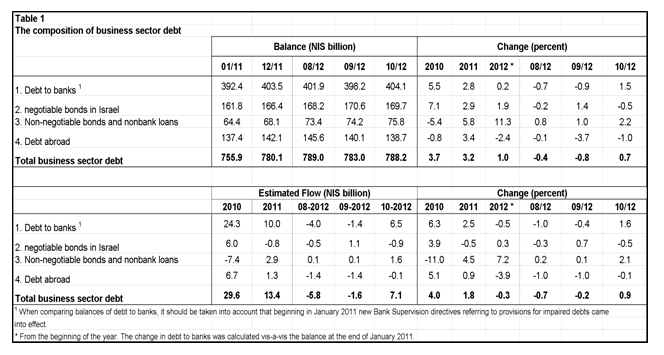

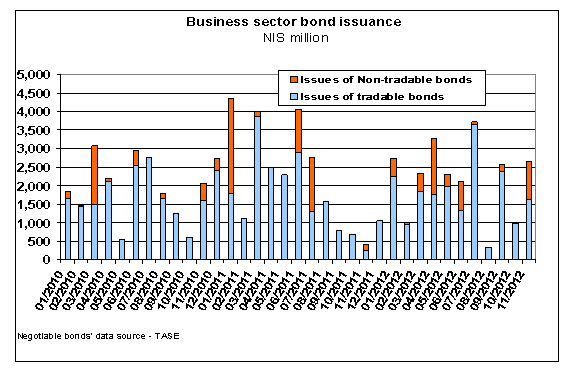
Households' debt
· Households' outstanding debt in October was NIS 386 billion. The balance of housing debt increased by about NIS 1 billion (0.3 percent), and at the end of October stood at NIS 275 billion. Since the beginning of 2012, outstanding housing debt has increased by NIS 16.5 billion (6.4 percent).
· New mortgages taken out in November totaled about NIS 4.1 billion. The figure for November is slightly above the average per month (NIS 3.8 billion) since the beginning of the year. It is still too early to estimate the effect on the housing market of the Supervisor of Bank's directives that limit the loan-to-value ratio in new housing loans, as these directives exclude, until the end of the year, loans which were approved in principle before the directives came into effect.

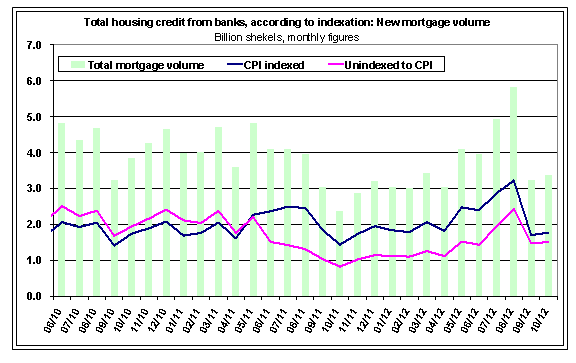
The cost of the debt
· The spread between interest on credit and interest on indexed deposits increased by about 0.1 percentage points in October, due to an increase in the interest rate on indexed credit. The spread between interest on credit and interest on unindexed deposits also increased by about 0.1 percentage points.
· There was a marked decline of about 1.1 percentage points in the spread between the yield on indexed corporate bonds—measured by the Tel-Bond 60 Index—and average yields on indexed government bonds, to 1.7 percentage points at the end of October. Since August 2012, the spread has declined by about 1.5 percentage points.
· In November, the average interest rates on new unindexed mortgages declined by about 0.25 percentage points, following the decline in the Bank of Israel interest rate. The average interest rate on new CPI-indexed mortgages was unchanged.
